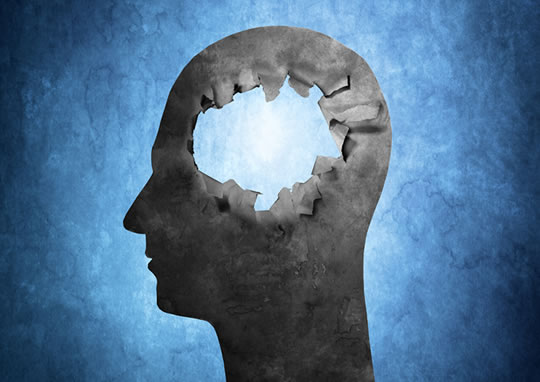How to reduce the risk of dementia, what causes it and a potential miracle cure.
Here are eight fascinating new studies on dementia and it’s most common form, Alzheimer’s disease.
Below you can find out what causes dementia, how the risk can be reduced and the latest technologies being used in the fight against it.
(Click the links for longer descriptions of the studies.)
How to reduce the risk
Some of the factors linked to a reduced risk of developing Alzheimer’s are well-known.
Eating the right diet, doing some exercise, getting checked out by a doctor and also giving the brain a workout, are all likely to be effective.
A recent study found impressive cognitive gains for people doing all four.
For specific activities linked to a lower risk, why not try computer use, as well as socialising and doing arts and crafts.
A new study has found that doing these in middle age may help preserve memory in later years.
Obesity on its own, though, does not seem to be linked to dementia — indeed, it may even reduce the risk.
Surprisingly, four very common medicines have also been linked to dementia risk.
They are:
- Doxepin (Sinequan) – an older antidepressant.
- Chlorpheniramine (Chlor-Trimeton) – an antihistamine used to treat hayfever.
- Diphenhydramine (Benadryl) – another antihistamine often used to treat hayfever and sometimes used to aid sleep.
- Oxybutynin (Ditropan) – for bladder control.
The MIND diet
For more specific advice about what to eat and what to avoid, check out the recent ‘MIND diet’ study.
The diet could reduce the risk of developing Alzheimer’s by over 50%.
Along with many of the usual suspects, the researchers identified one specific food which is particularly potent for protecting the brain: blueberries.
Another key ingredient, according to nutritional epidemiologists, is vitamin K, which is contained in leafy vegetables.
Older adults in the study who ate just two servings of leafy vegetables each day kept their brains around eleven years younger.
The real cause of Alzheimer’s?
There has been a lot of scientific debate just recently about what causes Alzheimer’s.
One recent study claimed that amyloid, a toxic protein frequently linked to Alzheimer’s may not be the main driver of the disease after all.
The ‘real’ cause of Alzheimer’s is a dysfunctional ‘tau’ protein, the scientists claimed.
If this turns out to be true, that will mean a lot of scientific work has been in vain.
But, hey, that’s science for you — research can go down loads of blind alleys before it finds a way through.
A miracle cure?
My award for best recent miracle cure goes to Australian scientists who have found a potential Alzheimer’s treatment that can restore memory using ultrasound technology.
The technique — which has been successfully tested on mice — does not involve drugs, but high frequency sound waves.
Professor Jürgen Götz, the director of the Clem Jones Centre for Ageing Dementia Research in Australia, and one of the study’s authors, said:
“We’re extremely excited by this innovation of treating Alzheimer’s without using drug therapeutics.
The ultrasound waves oscillate tremendously quickly, activating microglial cells that digest and remove the amyloid plaques that destroy brain synapses.”
Given that some scientists are questioning if amyloid is the real culprit, this miracle cure might not be so hot after all.
Runner-up in the miracle cure category goes to the life-extending protein called ‘klotho’.
A mouse study has found it may increase learning and memory and ward off Alzheimer’s.
Dr Dena Dubal, who led the study, said:
“It’s remarkable that we can improve cognition in a diseased brain despite the fact that it’s riddled with toxins.
In addition to making healthy mice smarter, we can make the brain resistant to Alzheimer-related toxicity.
Without having to target the complex disease itself, we can provide greater resilience and boost brain functions.”
Alzheimer’s photo from Shutterstock

